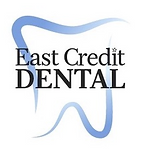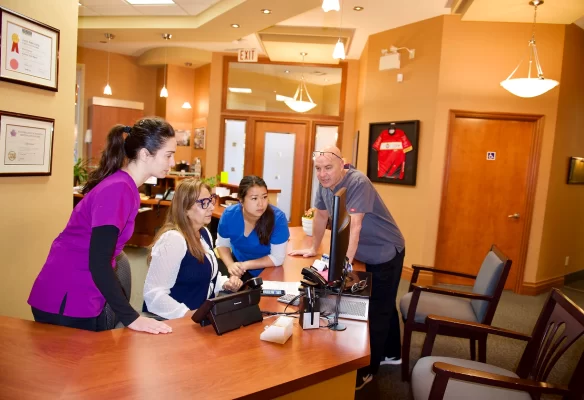Protect Your Smile with These Simple Preventive Tips From East Credit Dental
Dental emergencies are never planned, but with a little proactive care, many of these situations can be avoided. From sudden toothaches to broken teeth or severe gum pain, dental emergencies can cause a lot of discomfort and anxiety. Fortunately, there are several simple steps you can take to significantly reduce your risk of these urgent dental issues.
At East Credit Dental, we want you to enjoy a healthy smile that’s free from dental emergencies. Dr. Inigo and our team of dental professionals are committed to providing you with the best care possible and ensuring that your oral health is always in top shape. Here are some essential tips to help prevent dental emergencies and keep your teeth and gums strong for years to come.
If you’re experiencing a dental emergency, don’t hesitate to contact our Mississauga dental office. Call us today at (905) 567-1132.
How to Avoid Dental Emergencies
1. Practice Good Oral Hygiene Every Day
Maintaining a solid oral hygiene routine is your first line of defense against dental problems. Brushing your teeth at least twice a day with fluoride toothpaste and flossing daily helps to remove plaque and food particles that can lead to cavities, gum disease, and infections—each of which could eventually lead to a dental emergency.
Don’t forget to brush your tongue and use mouthwash as well to keep your entire mouth fresh and free of harmful bacteria. Keeping up with this routine at home can prevent many dental issues that would require urgent attention. If you’re not sure if you’re brushing or flossing correctly, ask your dentist for advice during your regular dental check-ups.
2. Visit Your Dentist Regularly for Checkups and Cleanings
Regular dental checkups are crucial in detecting and addressing problems before they turn into emergencies. Even if you feel fine and have no visible issues, your dentist can spot early signs of tooth decay, gum disease, or other problems that may not be apparent yet.
At East Credit Dental, we recommend seeing Dr. Inigo at least twice a year for routine exams and professional cleanings. These visits are key to keeping your teeth and gums healthy, preventing serious issues down the line, and ensuring that small problems don’t turn into big ones.
3. Protect Your Teeth with a Mouthguard
If you participate in contact sports or recreational activities where your teeth may be at risk of injury (like basketball, football, or biking), wearing a custom-made mouthguard is a simple and effective way to protect your smile. A properly fitted mouthguard will cushion any blows to the face, preventing cracked or knocked-out teeth and other oral injuries.
Even if you tend to grind your teeth at night (a condition called bruxism), a mouthguard can help protect your teeth from wear and tear. Ask your dentist about custom nightguards to protect your teeth while you sleep and avoid dental emergencies caused by tooth damage or discomfort.
4. Avoid Using Teeth as Tools
Your teeth are made for chewing, not for opening bottles, packages, or tearing things open. Using your teeth for anything other than eating can cause them to crack, chip, or break. Avoid the temptation to use your teeth as tools, as this is a common cause of unexpected dental damage.
If you find yourself using your teeth for such tasks, make sure to keep scissors or pliers nearby to avoid putting unnecessary strain on your teeth.
5. Be Mindful of Hard Foods and Sticky Treats
While nuts, ice, and hard candy might be tempting, they can all cause serious damage to your teeth. Biting down on something hard can crack or chip a tooth, while chewing on ice can wear down enamel. Similarly, sticky candies like caramel can pull out fillings or cause cavities if they stay stuck in your teeth too long.
If you do indulge in these foods, chew cautiously and avoid putting too much pressure on your teeth. Stick to softer foods when possible to protect your teeth from unexpected damage.
6. Don’t Ignore Signs of Dental Problems
Pain is often an early warning sign of a dental emergency. If you experience persistent toothaches, sensitivity to hot or cold, or discomfort when chewing, don’t wait for the pain to go away on its own. These could be signs of cavities, gum infections, or even cracks in your teeth.
The sooner you address dental issues, the less likely they are to escalate into emergencies. If you notice any unusual symptoms, contact your dentist to schedule an appointment as soon as possible. Prompt treatment can often prevent more serious issues, including root canals or tooth extractions.
7. Take Care of Restorations and Dental Work
If you have fillings, crowns, bridges, or any other dental restorations, be sure to take care of them. These restorations are designed to restore the function and appearance of your teeth, but they can still become damaged or loose over time.
If you notice any changes in your restorations, such as discomfort or a feeling of looseness, be sure to contact your dentist right away. Taking care of small issues with your dental work before they become larger problems can help avoid urgent repairs or replacements.
8. Protect Your Gums to Avoid Complications
Healthy gums are essential for maintaining a strong and functional smile. If you notice that your gums are red, swollen, or bleed when you brush or floss, it could be a sign of gum disease. Gum disease, if left untreated, can lead to tooth loss or severe infections that might require emergency care.
To keep your gums healthy, brush gently along the gumline, floss regularly, and visit your dentist for professional cleanings. Early treatment of gum disease is crucial in avoiding complications that could result in dental emergencies.
9. Be Cautious with Whitening Products
Many over-the-counter teeth whitening products can be harsh on your teeth and gums if used improperly. Whitening treatments that don’t suit your dental needs or are overused can lead to tooth sensitivity, irritation, or even damage to enamel.
If you’re considering whitening your teeth, talk to your dentist first. They can recommend safe, effective treatments that will give you the results you want without compromising your oral health.
10. Know What to Do in Case of a Dental Emergency
Even with the best preventive care, emergencies can still happen. It’s important to know what to do in case of a dental emergency, such as a knocked-out tooth, broken tooth, or severe pain. Here’s a quick guide:
- Knocked-Out Tooth: Try to place the tooth back in the socket if possible. If not, store the tooth in a cup of milk or saliva and seek immediate dental attention.
- Broken or Chipped Tooth: Rinse your mouth with warm water, and apply a cold compress to reduce swelling. Contact your dentist for treatment.
- Severe Toothache: Take over-the-counter pain relievers and apply a cold compress to the outside of your cheek to alleviate pain until you can see your dentist.
By knowing what to do in advance, you can minimize the damage and get the care you need quickly.
Trust East Credit Dental With Your Emergency Dental Needs
Taking care of your teeth and gums isn’t just about avoiding emergencies—it’s about ensuring long-term oral health and a smile that lasts a lifetime. By following these simple tips and seeing your dentist regularly, you can significantly reduce your risk of dental emergencies and avoid the pain, stress, and expense that often come with them.
If you’re due for a check-up, or if you have any concerns about your oral health, don’t hesitate to schedule an appointment by calling our Mississauga dental team at (905) 567-1132 today. We’re here to help you maintain a healthy, emergency-free smile!



